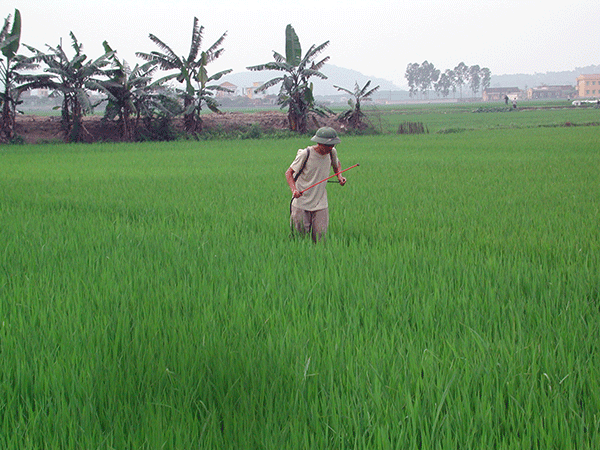- Advertisement -
SIALKOT, Apr 23 (APP):A training session for pesticide dealers was organised at the office of the Agriculture Department Sialkot, under the supervision of Director Agriculture (Plant Protection) Pest Warning and Quality Control Pesticides Dr. Maqsood Ahmed.
Addressing the training session, Director Agriculture (Plant Protection) Pest Warning and Quality Control Pesticides Dr Maqsood Ahmed said that rice is the most important crop of the country. He added that the Pakistani Basmati rice is in high demand in the markets of Europe, Africa, America and the Gulf due to its excellent aroma.
Director Agriculture (Plant Protection) Pest Warning and Quality Control Pesticides said that when the rice crop is in the final stages of preparation, our farmers spray unnecessary pesticides on it, due to which the residues of pesticides remain in the rice grains, due to which our rice exports are significantly reduced.
Dr. Maqsood Ahmed said that the aim of this training is to make you aware of the harms of unnecessary spraying to the farmers.
On this occasion, he gave a detailed briefing on the project for reducing pesticide residues on rice and vegetables, achieving pesticide residue-free production, harmful insects and diseases of the paddy crop, their identification and control, problems of paddy export, pesticide residues and prevention.
Director Agriculture (Plant Protection) Pest Warning and Quality Control Pesticides discussed in detail the issues of reducing pesticide residues on rice and vegetables, PHI, MRL and other prevailing issues and explained their effects.
He stressed the need to adopt an integrated approach to control pests by selecting and using appropriate and suitable pesticides, keeping the PHI in mind at all times, and always keeping the use of pesticides as a last resort.
He also called for adopting an integrated approach to control pests by selecting and using appropriate and suitable pesticides, keeping the PHI in mind at all times. He urged farmers to use integrated pest control methods, including the use of light traps, fruit fly traps, and minimal use of pesticides.

